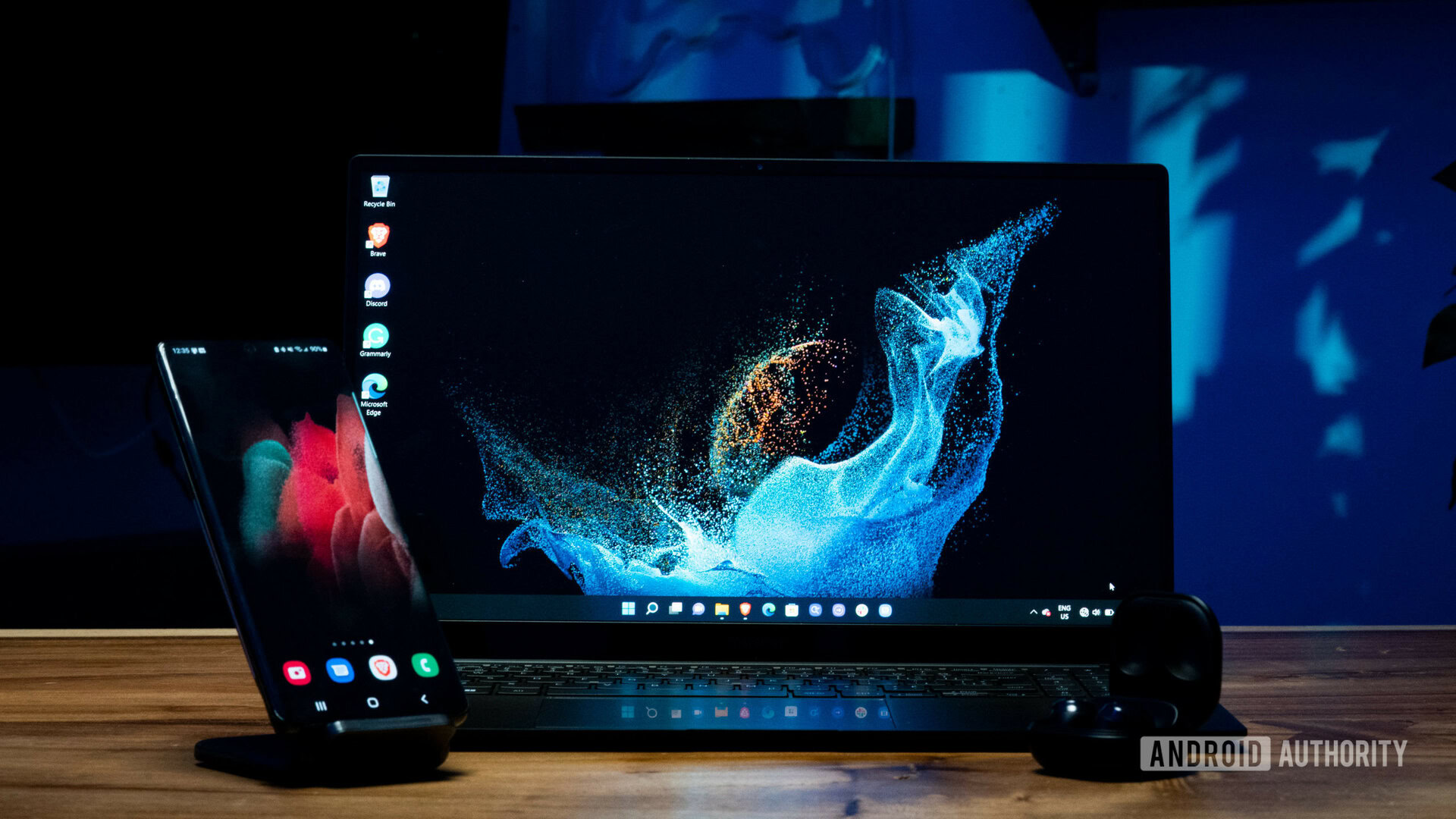Google's New Pixel Ecosystem Should Look To Samsung For Inspiration
From ECG readings to blood pressure measurements, the Samsung Galaxy Watch series can do more than any other Wear OS device. But there is a big problem: you cannot use this feature without a Samsung smartphone. It's not just one time; It's the same story wherever you look in the Samsung ecosystem.
Take the Samsung Buds, for example. Features like 360 audio and scalable audio codecs are exclusive to Samsung smartphones. The list extends to software: Samsung Pay no longer works on third-party Android smartphones, and SmartTag can't even be found on non-Galaxy devices.
Samsung has created an Android ecosystem that is so attractive that once you get involved in it, it's hard to change.
Given the continuity of the Samsung ecosystem, I think this serves as a solid plan for Google to follow, at least in part, with the next Pixel Watch and Pixel Tablet. For the first time in years, Google has a hardware portfolio that comes close to rivaling what Apple and Samsung offer. But while the Pixel line of smartphones is lauded for its imaging capabilities, the success of this next form factor depends entirely on whether Google can build a cohesive ecosystem. This is why.
Samsung ecosystem: A project for Google?

Adam Barney/Android Authority
Samsung's focus on building an ecosystem may have taken years, but its strategy is now paying off. With the potential to lose features, existing owners are unlikely to switch to a rival smartphone maker, let alone a completely different operating system. After all, we've seen Apple gain iPhone market share through iMessage.
Samsung's robust ecosystem comes at the expense of Android interoperability.
Despite the skepticism, Samsung's neglect of interoperability has made it possible to create a bespoke experience. In fact, you won't find many of these features anywhere else in the Android space. For example, the app's Resume feature provides Apple-like transfer functionality for voice calls, messages, notes, and browser tabs across devices. Samsung also has its own version of Universal Control that allows you to control tablets and phones with keyboards and laptop keyboards. Google should take note of Samsung's deep integration.
However, if you're not into the Galaxy ecosystem, you'll be happy to hear that the competition is on. Thanks to Google's renewed interest in tablets and other form factors, we're starting to see ecosystem features carry over to Android. With Android 13, you'll soon be able to stream chat apps on Chrome OS. Google is also working on a feature that will allow you to share notes between multiple Android devices.
With Android 13, Google is laying the foundation for a multi-device ecosystem.
The functions of the ecosystem go beyond simple software strategies, but Google also has a fighting chance in the hardware race. For example, while Samsung relies on a limited SmartThings ecosystem, Google Home supports just about every smart home brand under the sun.
Imagine if your smart watch could turn off the TV and lights when it detects that you're sleeping. Samsung already offers this feature on the Galaxy Watch 5, but only if you have a SmartThings device. There's no real reason why Google can't bring similar functionality to the Pixel Watch. With Google's vast network of connected brands, this feature would be useful to a larger audience.
Related: Pixel Watch can't work if Google reuses the same 8-year-old formula
In this case, Google can also leverage its machine learning expertise to make the Android ecosystem more personalized and predictive. We know that the company has experimented with displaying Smart Tips on the Android lock screen, only to abandon it at some point. Smart watches with half a dozen sensors could improve the accuracy of those predictions. Otherwise, even tracking your loyalty cards and payment methods through Google Wallet based on your current location would be a big plus for your convenience. The pieces are there, Google just needs to put them together.
Is the Google ecosystem for anyone or everyone?
While the prospects for a Google-centric ecosystem look promising, companies shouldn't follow Apple and Samsung's formula for exclusivity. Although Google's hardware market share is not lower than that of other Android OEMs, it is also responsible for updating the operating system every year. In other words, the benefits of its ecosystem should be brought to non-Pixel devices.
While previously Pixel-exclusive features like Fast Pair have finally made their way to Android, this transition has been infrequent. It's also unclear if current exclusives like text extraction from recent menus and real-time dictation will be brought to a wider range of devices.
The Pixel series gets exclusive software features every year, but few can keep up with them on Android.
It doesn't help that existing apps and services are showing signs of neglect. The Google Fit platform, for example, hasn't changed much over the years, aside from the occasional visual fix. That's likely because the next Pixel Watch will include "deeper integration with Fitbit." Google Fit will reportedly co-exist, for now, to cater to users of other Wear OS devices. However, the Fitbit features are likely to be exclusive to the Pixel Watch, which is a huge draw for potential customers.
Whether feature exclusivity will be the future of Android and Wear OS is a discussion for another day. For now, it's clear that Google has to strike a delicate balance between building an ecosystem that appeals to Pixel fans and upgrading the Android experience for everyone. The inclusion of Samsung features is undoubtedly a blow to Android interoperability, and if Google takes inspiration from Samsung's ecosystem, it needs to redress that balance.
AA Debate: Is Google's Ecosystem Moving Too Fast?


Post a Comment for "Google's New Pixel Ecosystem Should Look To Samsung For Inspiration"